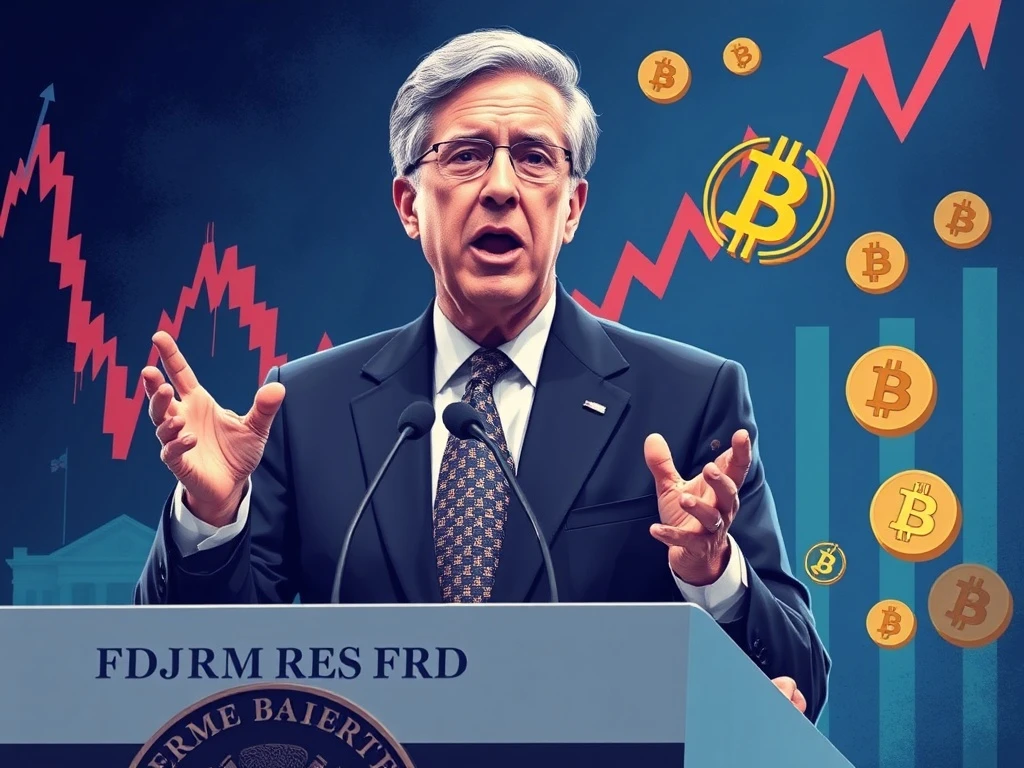Jerome Powell Alerts: Tariffs Fuel Inflation and Disrupt Fed Policy – What It Means for Crypto

Federal Reserve Chairman Jerome Powell has issued a stark warning: tariffs are driving inflation higher and complicating the Fed’s monetary policy decisions. For cryptocurrency investors, this could signal both risks and opportunities as markets react to rising prices and economic uncertainty.
How Tariffs Are Driving Inflation
Powell highlighted that tariffs on imported goods like steel and agricultural products increase production costs for businesses. These costs often get passed to consumers, leading to higher prices across the economy. Key impacts include:
- Increased retail prices for consumer goods
- Supply chain disruptions and delays
- Reduced purchasing power for households
The Fed’s Inflation Dilemma
With the Personal Consumption Expenditure (PCE) index rising to 2.7% – above the Fed’s 2% target – policymakers face tough choices about interest rates. Higher inflation could lead to:
| Scenario | Potential Outcome |
|---|---|
| Rate hikes | Stronger dollar but slower growth |
| Rate pauses | Persistent inflation risks |
| Policy shifts | Market volatility |
Cryptocurrency as an Inflation Hedge?
Some investors view Bitcoin and other cryptocurrencies as potential hedges against inflation due to their fixed supply. However, crypto markets remain volatile, and their effectiveness as inflation protection depends on:
- Market adoption trends
- Regulatory developments
- Macroeconomic conditions
Actionable Insights for Investors
To navigate this challenging environment, consider:
- Diversifying across asset classes
- Monitoring Fed policy statements
- Assessing company pricing power
- Evaluating inflation-resistant assets
Frequently Asked Questions
Q: How do tariffs directly affect cryptocurrency markets?
A: Tariffs can indirectly impact crypto by creating economic uncertainty, which may drive some investors toward decentralized assets as hedges.
Q: What Fed policies most affect crypto prices?
A: Interest rate decisions and quantitative easing/tightening policies significantly influence investor risk appetite and capital flows.
Q: Can cryptocurrencies reliably protect against inflation?
A: While Bitcoin’s fixed supply suggests inflation-resistant properties, its volatility makes it an imperfect hedge compared to traditional inflation-protected securities.
Q: How long might tariff-driven inflation last?
A: Duration depends on trade policy changes, supply chain adjustments, and whether higher prices become embedded in consumer expectations.







